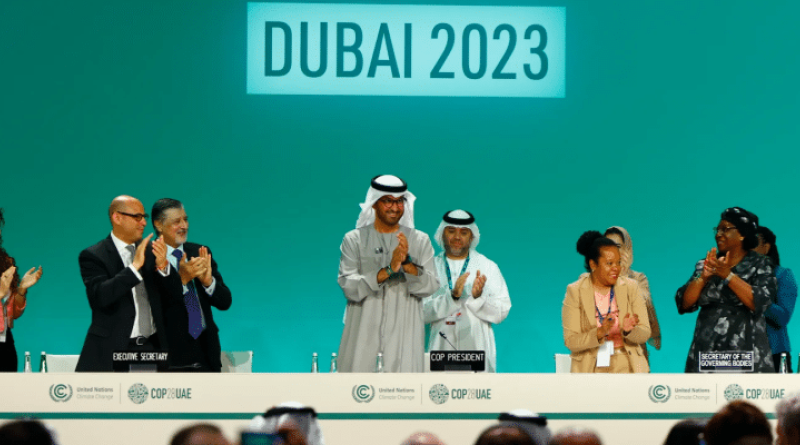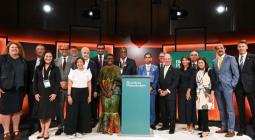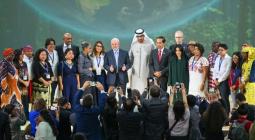COP28: an agreement reached in Dubai to transition away from fossil fuels

The 28th United Nations Conference of the Parties on Climate Change (COP28) ends with an agreement for a transition “away from fossil fuels”. The agreement which provides for the exit from fossil fuels by 2050 is widely welcomed internationally.
After the rejection of the first text, the UAE presidency of COP28 finally reached an agreement after a long night of negotiations in Dubai. The 21-page text evokes a “elimination of renewable energies” by 2050 and calls for “accelerate global efforts to achieve net-zero emissions energy systems, using zero- or low-carbon fuels well before or around mid-century”. Without details.
At the same time, States must eliminate “progressively and as soon as possible ineffective subsidies for fossil fuels which do not help to combat energy poverty or ensure fair transitions”. This proposal is in line with the strategy of the International Monetary Fund (IMF) which is forcing African countries to abandon subsidies on petroleum products. At the start of 2023, Cameroon was, for example, forced to give up certain subsidies, which led to an increase in fuel prices.
The use of transition energies
While calling for “tripling renewable energy capacity globally and doubling the global average annual rate of improvement in energy efficiency by 2030”< /span>, the text however remains ambiguous on certain aspects of the energy transition, because for certain countries, notably Senegal, gas, which is a fossil energy, is a transition energy. Other low-carbon fuels can contribute to the expected transition.
This is the case for hydrogen produced from clean electricity that the industrial sector is working to develop and whose large-scale production is not expected to begin before 2030. Nuclear power, another energy of fossil origin , is also considered as an alternative to limit global warming. Several African countries want to launch into this sector. This is the case of Egypt, Rwanda, Ghana, and recently Mali and Burkina Faso with the support of Russia.
Scaling up climate finance
On the issue of adaptation, the text calls on developed country parties to “fully and urgently achieve” the objective of 100 billion dollars per year until 2025. In addition to financing “loss and damage” whose dedicated fund was definitively adopted at the start of COP28, the text also highlights that the adaptation financing needs of developing countries are estimated at $215.387 billion per year until 2030, and that around $4.3 trillion per year needs to be invested in clean energy until 2030, then $5 trillion per year until 2050, to achieve carbon neutrality by 2050.
The implementation of these proposals is necessary to limit global warming to 1.5°C “without or with limited excess”. To do this “global greenhouse gas (GHG) emissions must be reduced by 43% by 2030 and by 60% by 2035 compared to the level of 2019, and achieve net zero carbon dioxide emissions by 2050”, we can read in the final document.
This agreement has already provoked a lot of reactions at the international level. France, Denmark, the European Union (EU) and the United States of America all welcome progress in mitigating global warming through the gradual phase-out of fossil fuels, as low-income countries defend “the right to exploit these resources” for their development. Several reactions are expected on the African continent, notably that of Senegal, or even the Democratic Republic of Congo (DRC) which is preparing to exploit its oil and gas deposits, including in the heart of the equatorial forest. The outlines of these commitments will undoubtedly be clarified during the COP29 which Azerbaijan will host in 2024.






